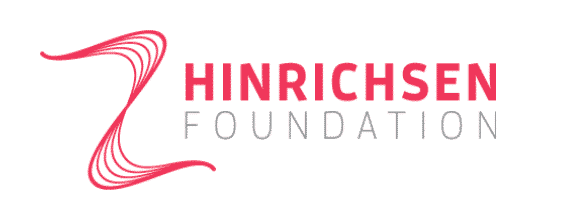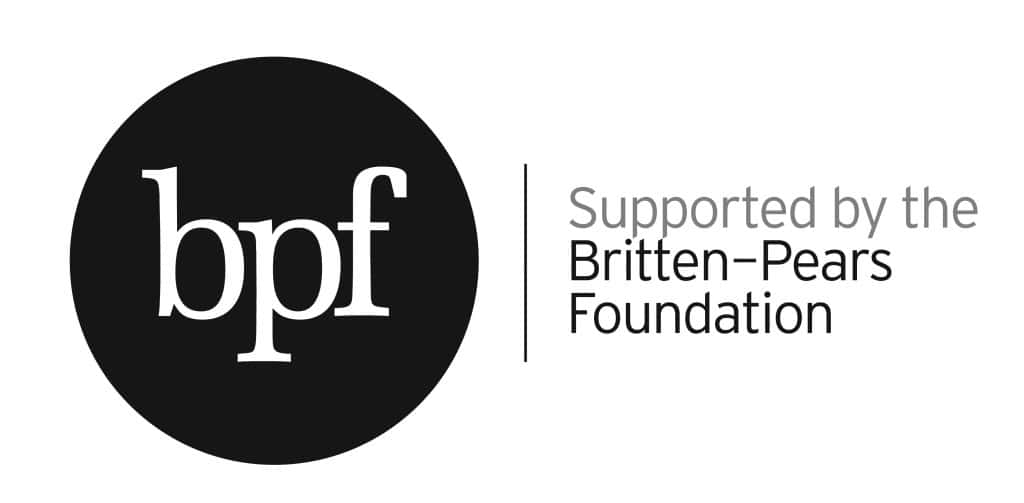Yehudi Menuhin, Principal Guest Conductor 1990-1999
Legendary violinist, humanitarian, educator and conductor Yehudi Menuhin had a long and productive association with the ESO, and became the orchestra’s Principal Guest Conductor in 1991. He led the orchestra in many concerts and toured with the ESO to the United States and Europe.
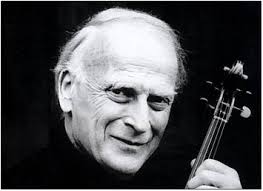
An ESO musician shares his memories of Menuhin’s years at the English Symphony Orchestra and English String Orchestra:
“When I first joined the ESO Yehudi Menuhin was already principal guest conductor and William Boughton had with great foresight realised what this appointment could do for the orchestra. As a musician he was not only unique but also in a unique position – he had nothing to prove as he had done it all! His musical conception was with the gods. His baton technique was probably not! But the effect was that the orchestra played like a chamber group listening carefully to each other while he steered the whole performance in such a way that on the best days it was completely unforgettable. I remember pinching myself during Mendelssohn’s Scottish Symphony in Cologne to make sure I was still there, it was so transcendent.
Like probably all truly great musicians he was unpredictable and the moments of heaven could be matched by the opposite – but in retrospect that does not worry me at all. He was in his seventies and eighties when he was with us and been famous since the age of ten. One looked on him as some sort of marvel. And yet while enjoying the limelight he also had humility. My overriding sense was that when on perfect form he put the highest conception of the music right up there in a place that all on the platform could not help but reach for it.”
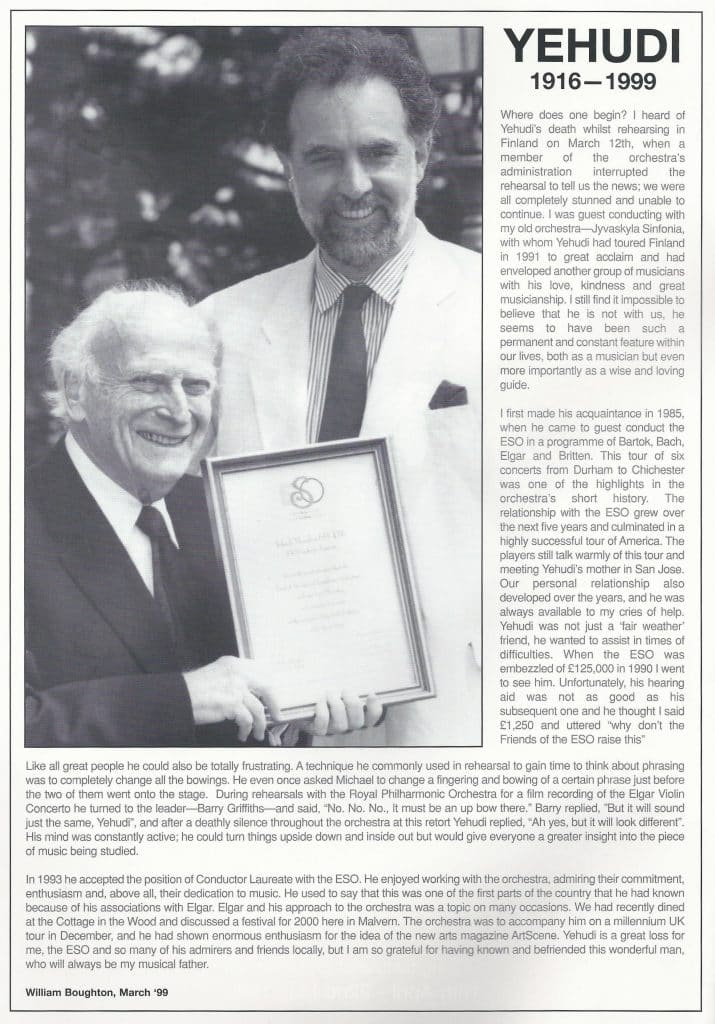 Yehudi Menuhin was born in New York City, United States, to Jewish parents from what is now Belarus. His sisters were the concert pianist and human rights worker Hephzibah Menuhin and the pianist, painter, and poet Yaltah Menuhin. Through his father Moshe Menuhin, a former rabbinical student and anti-Zionist writer, Menuhin was descended from a distinguished rabbinical dynasty.
Yehudi Menuhin was born in New York City, United States, to Jewish parents from what is now Belarus. His sisters were the concert pianist and human rights worker Hephzibah Menuhin and the pianist, painter, and poet Yaltah Menuhin. Through his father Moshe Menuhin, a former rabbinical student and anti-Zionist writer, Menuhin was descended from a distinguished rabbinical dynasty.
Menuhin began violin instruction at age four under violinist Sigmund Anker; his parents had wantedLouis Persinger to be his teacher, but Persinger refused.[1] Menuhin displayed extraordinary talents at an early age. His first solo violin performance was at the age of seven with the San Francisco Symphony Orchestra in 1923. Persinger then agreed to take Menuhin as a student. When the Menuhins went to Paris, Persinger suggested Yehudi go to his own teacher, Eugène Ysaÿe. He did have one lesson with Ysaÿe, but did not like his method or the fact that he was very old.[1] Instead, he went to the Romaniancomposer and violinist George Enescu, after which he made several recordings with his sister Hephzibah. He was also a student of Adolf Busch. In 1929 he played in Berlin, under Bruno Walter‘s baton, three concerti by Bach, Brahms and Beethoven. In 1932 he recorded Edward Elgar‘s Violin Concerto in B minor for HMV in London, with the composer himself conducting, and between 1934 and 1936 he made the first integral recording of Johann Sebastian Bach‘s Sonatas and Partitas for Solo Violin.
Yehudi Menuhin performed for Allied soldiers during World War II, and accompanied English composer Benjamin Britten to perform for inmates of Bergen-Belsen concentration camp, after its liberation in April 1945. He returned to Germany in 1947 to perform with the Berlin Philharmonic Orchestra under the baton of conductor Wilhelm Furtwängler as an act of reconciliation, becoming the first Jewish musician to do so following the Holocaust. He said to critics within the Jewish community that he wanted to rehabilitate Germany’s music and spirit. After building early success, he experienced considerable physical and artistic difficulties caused by overwork during the war as well as unfocused and unstructured early training (reportedly he said “I watched myself on film and realized that for 30 years I’d been holding the bow wrong”). Careful practice and study combined with meditation and yoga helped him overcome many of these problems. When he finally resumed recording, he was known for practising by analyzing music phrases one note at a time.
He and Louis Kentner (brother-in-law of his wife, Diana) gave the first performance of William Walton‘s Violin Sonata, at Zürich on 30 September 1949.
Menuhin continued to perform to an advanced age, becoming known for profound interpretations of an austere quality, as well as for his explorations of music outside the classical realm.
Menuhin regularly returned to the San Francisco Bay Area, sometimes performing with the San Francisco Symphony Orchestra. One of the more memorable later performances was of Edward Elgar‘s Violin Concerto, which Menuhin had recorded with the composer in 1932.
On 22 April 1978, along with Stéphane Grappelli, Yehudi played Pick Yourself Up, taken from the Menuhin & Grappelli Play Berlin, Kern, Porter and Rodgers & Hartalbum as the interval act at the 23rd Eurovision Song Contest for TF1. The performance came direct from the studios of TF1 and not that of the venue (Palais des Congrès), where the contest was being held.
Menuhin hosted the PBS telecast of the gala opening concert of the San Francisco Symphony from Davies Symphony Hall in September 1980.
During the 1970s, 1980s and 1990s, Menuhin made jazz recordings with Stéphane Grappelli, classical recordings with L. Subramaniam and albums of Eastern music with the sitarist Ravi Shankar. In 1983 he founded the Yehudi Menuhin International Competition for Young Violinists in Folkestone, Kent.
His recording contract with EMI lasted almost 70 years and is the longest in the history of the music industry. He made his first recording at age 13 in November 1929, and his last in 1999, when he was nearly 83 years old. He recorded over 300 works for EMI, both as a violinist and as a conductor. In 2009 EMI released a 51-CD retrospective of Menuhin’s recording career, titled Yehudi Menuhin: The Great EMI Recordings.
In 1990 Menuhin was the first conductor for the Asian Youth Orchestra which toured around Asia, including Japan, Taiwan, Singapore and Hong Kong with Julian Lloyd Webber and a group of young talented musicians from all over Asia.
